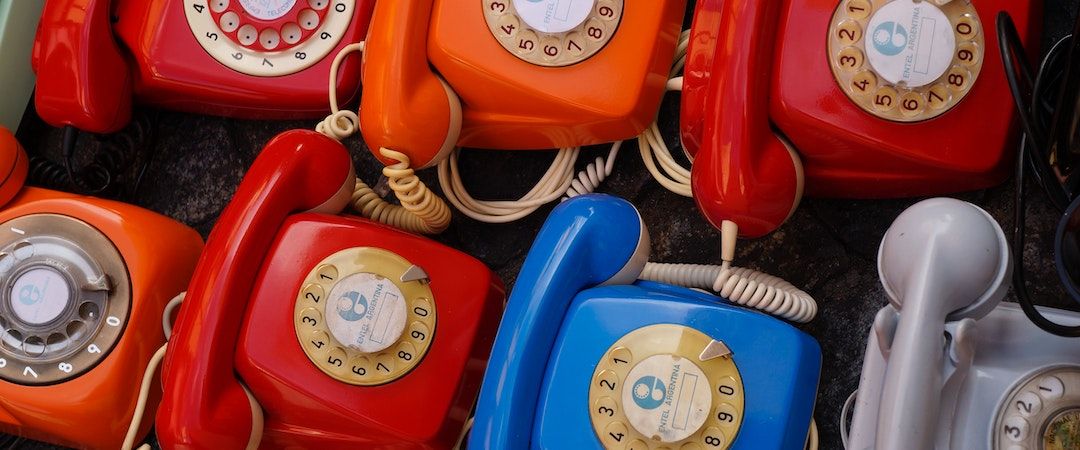Telephone Directories: A Bygone Era
In this blog, we explore the reasons behind the disappearance of telephone directories and the rise of digital alternatives.

Once upon a time, when the world was not yet digitized, and Google was but a fledgling tech company, telephone directories were a ubiquitous presence in homes and offices worldwide. These hefty tomes contained a list of phone numbers, arranged alphabetically, and were the go-to resource for finding contact information. However, as we embrace the digital age, the once-familiar telephone directories have gradually faded into obscurity. In this blog, we explore the reasons behind the disappearance of telephone directories and the rise of digital alternatives.

The Golden Age of Telephone Directories
Before the Digital Deluge
Before smartphones and the internet became integral parts of our lives, telephone directories reigned supreme as the primary source of contact information. Printed on paper, these directories listed names, addresses, and phone numbers of individuals and businesses within a specific geographical area. People relied on them to find plumbers, electricians, restaurants, and long-lost friends alike.
Reasons Behind the Vanishing Act
The Digital Revolution
Several factors contributed to the decline and eventual disappearance of telephone directories.
- Digitalization: The advent of the internet and the proliferation of smartphones revolutionized how we access information. Online directories, search engines, and mobile apps like Google, Yelp, and social media platforms made finding contact information quicker and more convenient.
- Environmental Concerns: Telephone directories were often criticized for their sheer bulk and the environmental impact of printing millions of copies each year. The move toward sustainability and eco-friendliness prompted many to question the necessity of producing such volumes of paper directories.
- Cost Efficiency: Printing and distributing physical directories incurred substantial costs for telephone companies. Transitioning to digital platforms reduced overhead and allowed for more frequent updates, keeping information current.
- Declining Use: As digital alternatives gained popularity, fewer people reached for the phone book. Many directories went untouched, collecting dust on shelves or ending up in the recycling bin, a clear sign of their diminishing relevance.
The Digital Era Takes Over
The Rise of Online Directories
The disappearance of telephone directories coincided with the ascent of online directories and search engines. Here's why digital directories have become the preferred choice:
- Accessibility: Online directories are accessible from virtually anywhere with an internet connection, eliminating the need for a physical book. This convenience made them an indispensable tool in our fast-paced world.
- Search Features: Digital directories offer advanced search features, allowing users to find contact information quickly and accurately. Filters, maps, and reviews provide additional utility.
- Frequent Updates: Online directories can be updated in real-time, ensuring that contact information remains current. This is in stark contrast to printed directories, which could quickly become outdated.
- Wider Reach: Digital directories can cover vast geographic regions, making them more comprehensive than their physical counterparts. Users can search for businesses and individuals globally.
- Cost-Free: Most online directories are entirely free to use, making them an economically appealing option for both businesses and consumers.
A Nostalgic Farewell
The End of an Era
The disappearance of telephone directories marks the end of a nostalgic era. For many, these thick books held sentimental value, offering a tangible connection to the past. Children once used them as booster seats, and creative individuals transformed them into art and craft projects.
As we bid farewell to telephone directories, we must acknowledge that they played a crucial role in connecting people in the pre-digital age. They were a symbol of a simpler time, when flipping through pages and making handwritten notes were integral to the process of finding information.

In Conclusion: The Evolution of Information Retrieval
The disappearance of telephone directories is a testament to the relentless march of technological progress. While we may feel a pang of nostalgia for the hefty tomes that once graced our homes, we cannot deny the incredible convenience and efficiency of digital alternatives. The rise of online directories and search engines has made finding contact information faster and easier than ever before.
As we look back on the era of telephone directories, let's appreciate the role they played in connecting people and businesses. They were an essential tool in their time, and while they may have vanished from our lives, their legacy lives on in the digital directories that have taken their place.